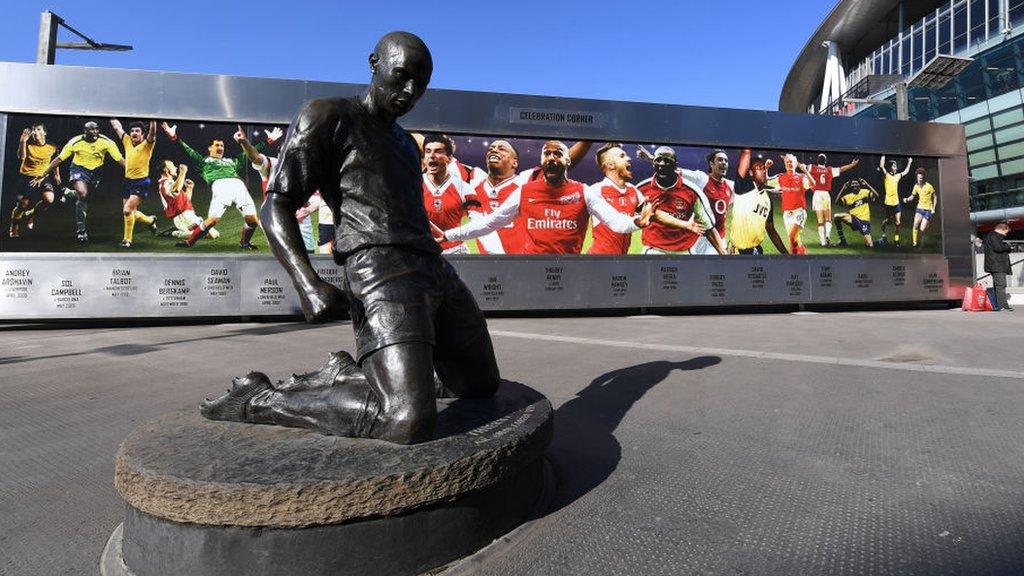Jack Leslie statue unveiled at Plymouth Argyle
- Published
Matt Tiller, who campaigned for the statue, said it felt "incredible to reach this point"
A statue of a pioneering black footballer has been unveiled.
The 12ft (3.7m) statue of Jack Leslie has been placed outside the ground of Plymouth Argyle, the club he scored 137 times for in the 1920s and 1930s.
In 1925 he was selected for the England squad, and his family said he was later denied his place due to the colour of his skin.
Matt Tiller, who campaigned for the statue, said "to see Jack come home to Plymouth Argyle is just incredible".
When Leslie moved to Plymouth from east London in 1921, he was the only black professional footballer in the country.
He went on to play 400 times for the team and became club captain.
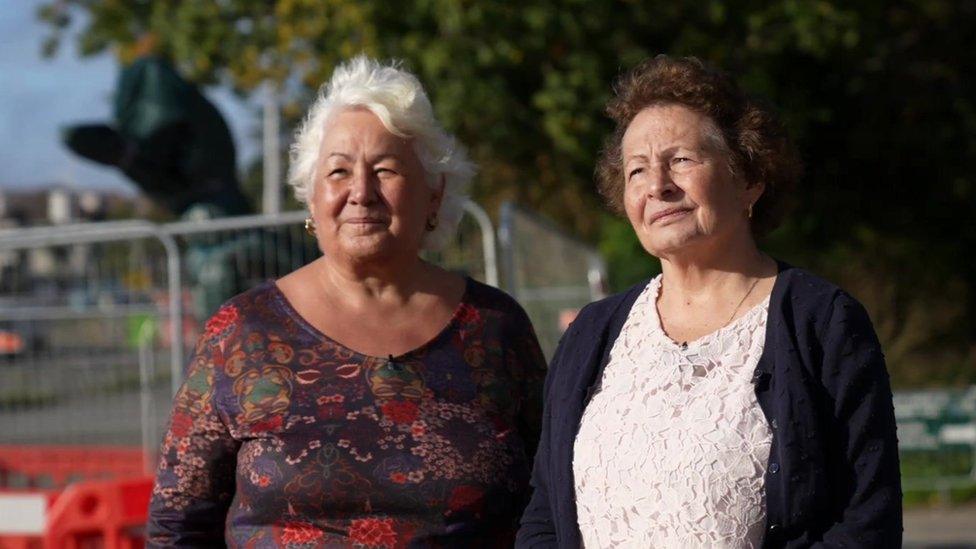
Leslie's granddaughters Lyn Davies and Lesley Hiscott said he was "never bitter" about being dropped from the England squad
Granddaughter Lesley Hiscott said: "The whole situation to us is like a dream, we have to keep pinching ourselves to make sure it really is happening and to actually see the statue there... at long last grandad's getting the recognition he deserved."
Granddaughter Lyn Davies said her grandad's story was not well known to the public.
She said: "It was just a confined few that knew the story... but now, everyone's going to know. Football was his passion, to be paid for doing what you love, he was happy to do that."
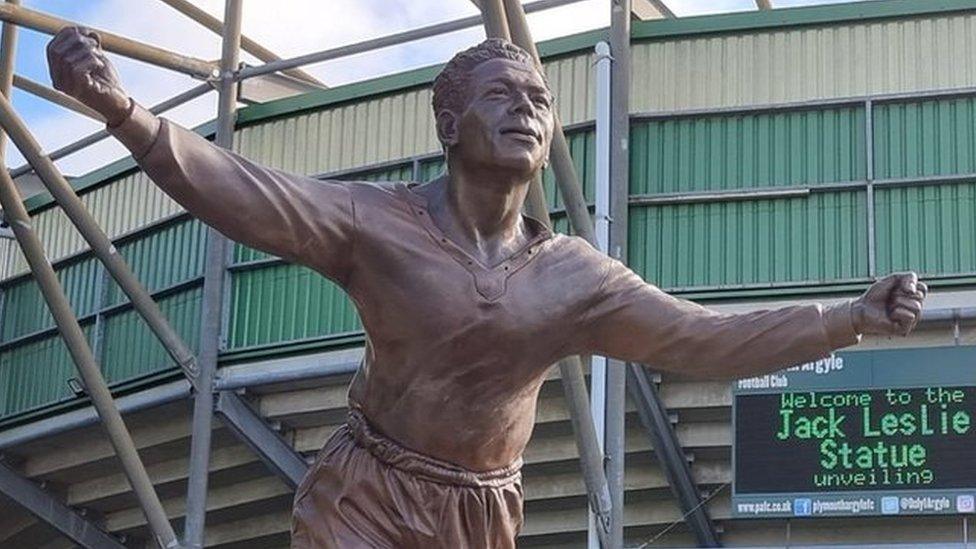
Jack Leslie scored 137 goals for Plymouth Argyle in the 1920s and 1930s
Ms Hiscott added that the statue would symbolise the "wider issue" of racism in the industry.
"He was never given any reason as to why he had been dropped and the only presumption is because he was playing such brilliant football, he wasn't injured, he had not been suspended, the only issue was the colour of his skin.
"We're hoping that as the story goes out, it will help in the fight against injustice caused by prejudice to try and sort that, promote diversity and equality."
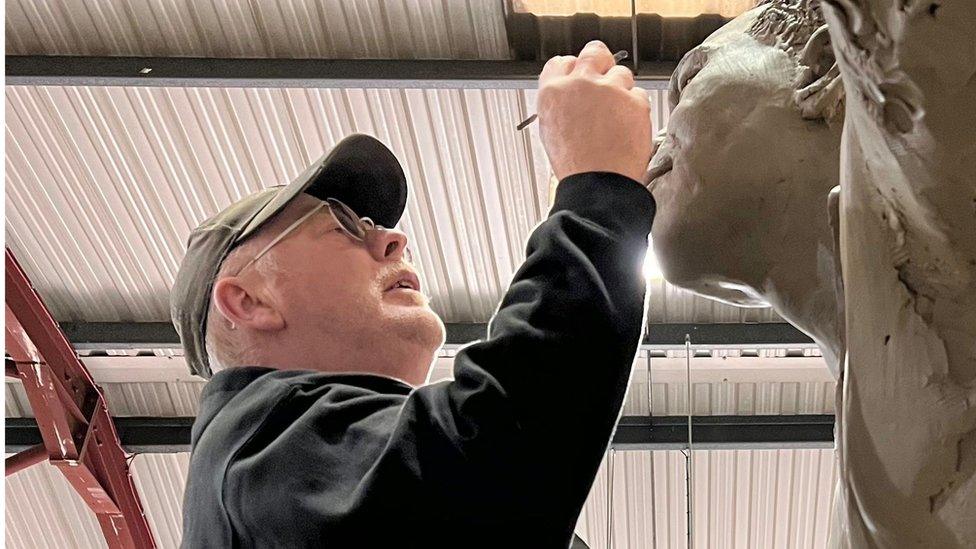
The fan-led campaign started in 2019 and has raised £140,000 for the statue sculpted by Andy Edwards
Mr Tiller said: "It's a great thing as an Argyle fan to have a statue of a legend outside the club, but this statue is more than that.
"Jack Leslie was a true Argyle legend but the story of what happened to him with the England call up and that being denied because of the colour of his skin, is an important story to be told."
He added: "It is not just a lump of bronze. It is not just a representation of a footballer. It is there to tell the story of his career, and what he had to deal with."

Jenny Kumah, South West England Correspondent
Hundreds gathered to witness this wonderful moment in Plymouth - including schoolchildren, Argyle footballers and a local MP.
Jack Leslie's granddaughters were moved to tears when they finally saw the 12ft (3.7m) bronze statue revealed in its full glory.
The family were struck by the likeness - they told me it was like seeing their grandad again - more than 30 years after he died.
The statue shows the footballer in a dynamic pose, arms out wide celebrating a goal. A symbol of resilience shown by diverse footballers past and present.

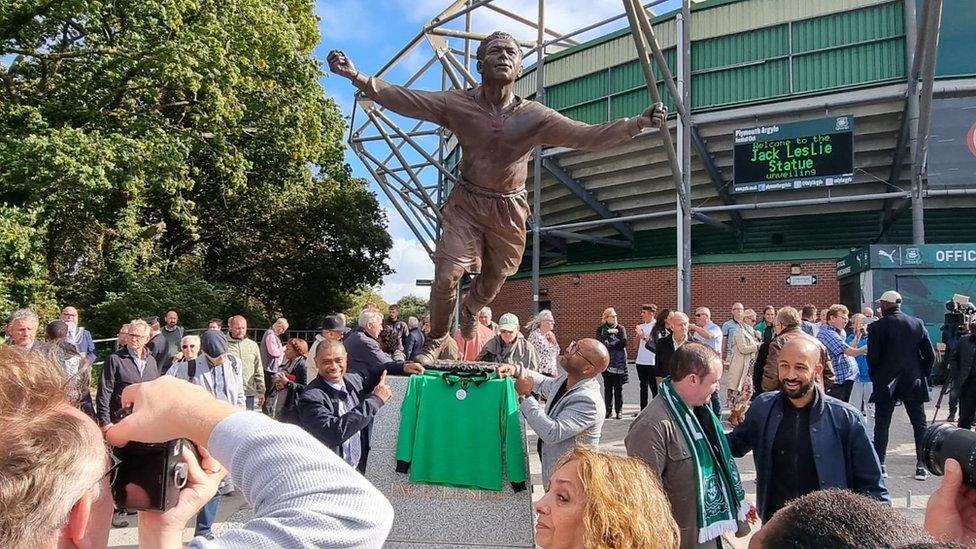
Former players Dwight Marshall and Ronnie Mauge attended the unveiling
Former Plymouth Argyle football player and ambassador for the club Ronnie Mauge said Leslie's story was a "testimony to how good a player he was", and hoped his story would now become a recognised part of history.
He said: "For a young black man to be denied playing for his country just because of the colour of his skin... in a time when Jack played in the 1920s, he was the only black professional footballer playing at the time so you can imagine the abuse that he would have received up and down the country, so he would have had thick skin.
"He was the first black player to be selected for England and that wasn't taught in schools, that wasn't taught by anyone, that was like forgotten history... he was a proper trailblazer."
Mr Mauge said there was "still a long way to go" to tackle racism in and outside of the game.
"We have to get this right, racism isn't a football problem, it's a social problem, and until we start looking at the social aspects of racism and coming together and talking about racism, you know we've still got a lot of work to be done," he said.
'Right the historical wrong'
Football Association chair, Debbie Hewitt, said: "Jack Leslie is a true football legend who, through his own adversity, has positively shaped attitudes and behaviours to identify and remove discrimination from football.
"The FA is awarding Jack a posthumous honorary cap, to recognise his unique contribution and set of circumstances - and to right the historical wrong."
Ms Hewitt said the FA would continue to make English football "more diverse and inclusive and a game for all".
"We owe a huge debt of gratitude to Jack and to his family for comprehensively and consistently driving positive change through football," she said.
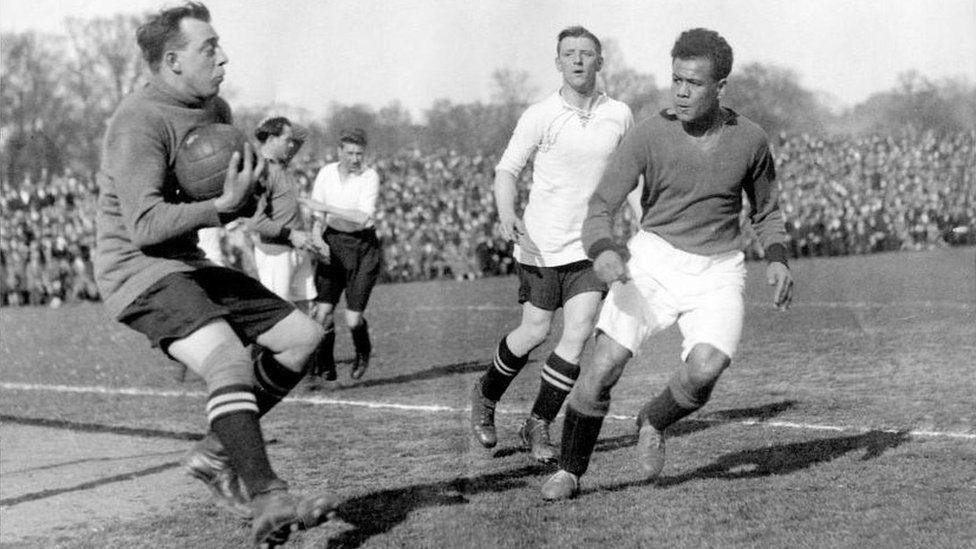
The FA awarded Jack Leslie an honorary cap to recognise his "unique contribution" to the game
Manager at Plymouth Argyle, Steven Schumacher, said: "It's an important story that we should have learned a lot of lessons from, which I know that we have, but we're still probably not in the place where football in this country needs to be.
"It's amazing work that the people have done behind the scenes to raise the amount of money to rightly put that statue up."
The unveiling was attended by Leslie's family members, senior club representatives and those behind the campaign.
Ahead of Plymouth Argyle's match against Accrington Stanley on Saturday, there will be there will be a celebration of Leslie's legacy.

Follow BBC News South West on Twitter, external, Facebook, external and Instagram, external. Send your story ideas to spotlight@bbc.co.uk.
Related topics
- Published8 August 2022
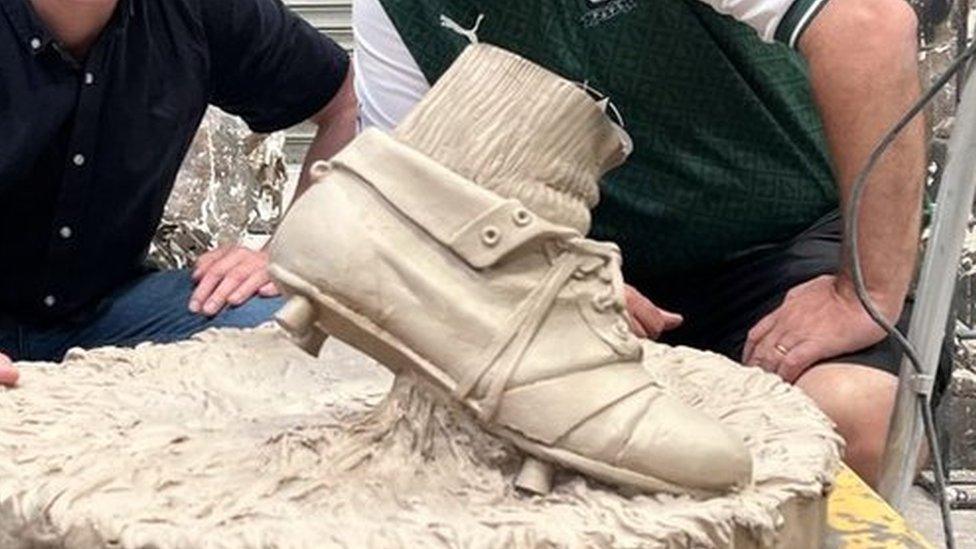
- Published18 May 2022
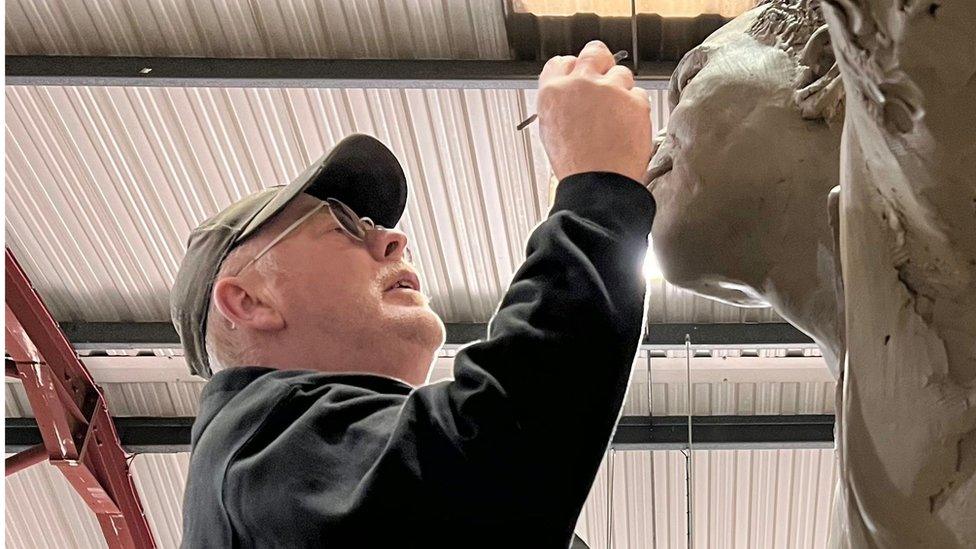
- Published1 July 2021
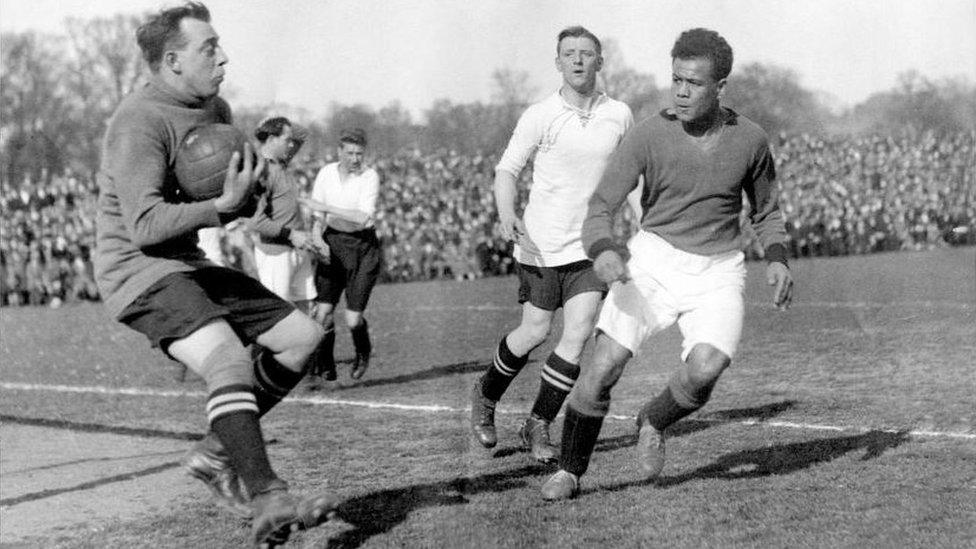
- Published1 July 2020
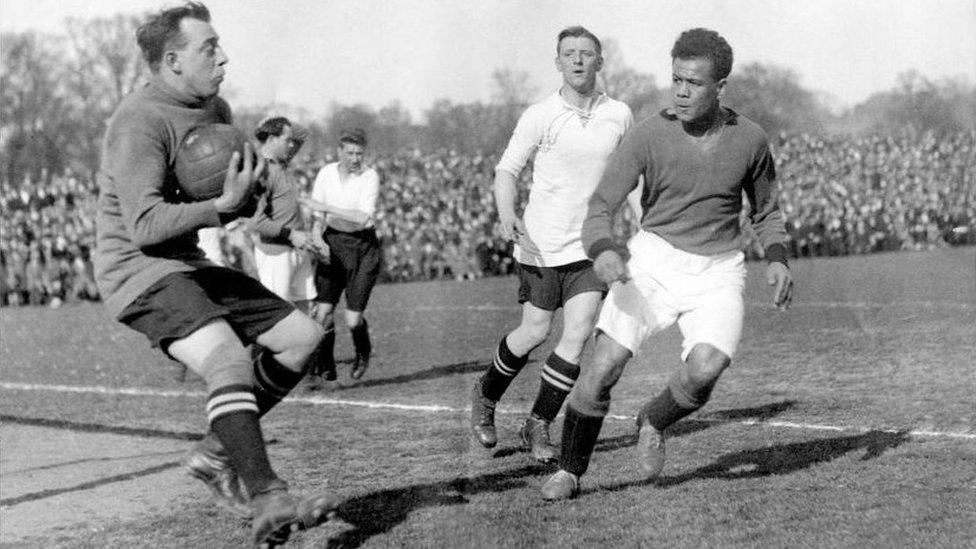
- Attribution
- Published12 August 2020
